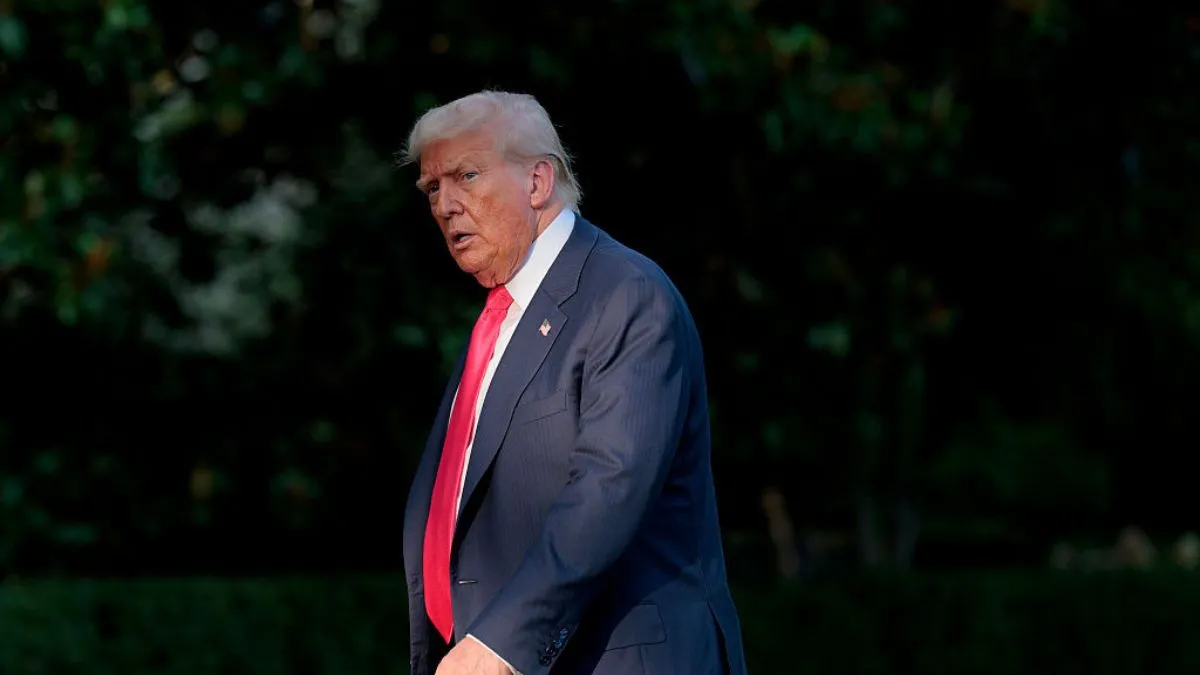Former President Donald Trump has launched a $20 billion lawsuit against media tycoon Rupert Murdoch, News Corp., and The Wall Street Journal over a recent article that alleged Trump once wrote a provocative birthday note to Jeffrey Epstein. The lawsuit also targets Dow Jones & Co., which publishes the Journal, as well as two of the newspaper’s reporters, claiming defamation and journalistic misconduct.
The article in question described what it called a “bawdy” birthday message Trump allegedly sent to Epstein, the financier who was convicted of sex crimes and had ties to several high-profile individuals before his controversial death in 2019. Trump’s legal team has labelled the letter a complete fabrication and accuses The Wall Street Journal of spreading false and damaging information without proper evidence or verification.
Trump did not hold back in addressing the matter publicly. On his Truth Social platform, he wrote: “I look forward to getting Rupert Murdoch to testify in my lawsuit against him and his ‘pile of garbage’ newspaper, the WSJ. That will be an interesting experience!!!” The post reflects Trump’s combative stance toward media organisations he believes have treated him unfairly, a dynamic that has defined much of his political career.
In a separate move that underscores the seriousness of the dispute, the White House reportedly removed The Wall Street Journal from its press pool for an upcoming trip to Scotland. While the administration has not officially linked the decision to the lawsuit, the timing suggests a broader effort by Trump to penalise the outlet through both legal and political pressure.
Interestingly, this lawsuit follows a pattern of recent media settlements involving Trump. In the past year, several major companies, including Disney and Paramount, opted to resolve disputes with Trump quietly. Disney paid $15 million to end a conflict involving ABC News, and Paramount settled for $16 million in a case connected to CBS News. Legal experts have noted that in some instances, these companies may have had strong legal defenses but chose to avoid lengthy litigation and bad press.
Despite the lawsuit, The Wall Street Journal and its parent company, Dow Jones, are standing firm. In a brief statement, a spokesperson said the publication stands by its reporting and intends to vigorously defend itself in court. They emphasised that the Journal’s editorial standards are strong and that the story met their typical threshold of accuracy and credibility.
Under Murdoch’s ownership, The Wall Street Journal has maintained a reputation for straight news coverage and serious financial reporting, even while some of his other media outlets, like Fox News and the New York Post, have openly supported Trump’s political agenda. However, the relationship between Trump and Murdoch’s media empire has grown more strained in recent years. After the January 6 Capitol riots, several of Murdoch’s outlets distanced themselves from Trump. The New York Post editorial board criticised his actions, and Murdoch himself reportedly expressed concerns in internal conversations with Fox News executives.
Now, with Trump escalating his legal fight against The Wall Street Journal, the long-running friction between the former president and Murdoch’s media conglomerate has reached new intensity. As the case unfolds, it could test the boundaries of press freedom, political power, and the complex relationship between a former president and one of the most influential media empires in the world.


